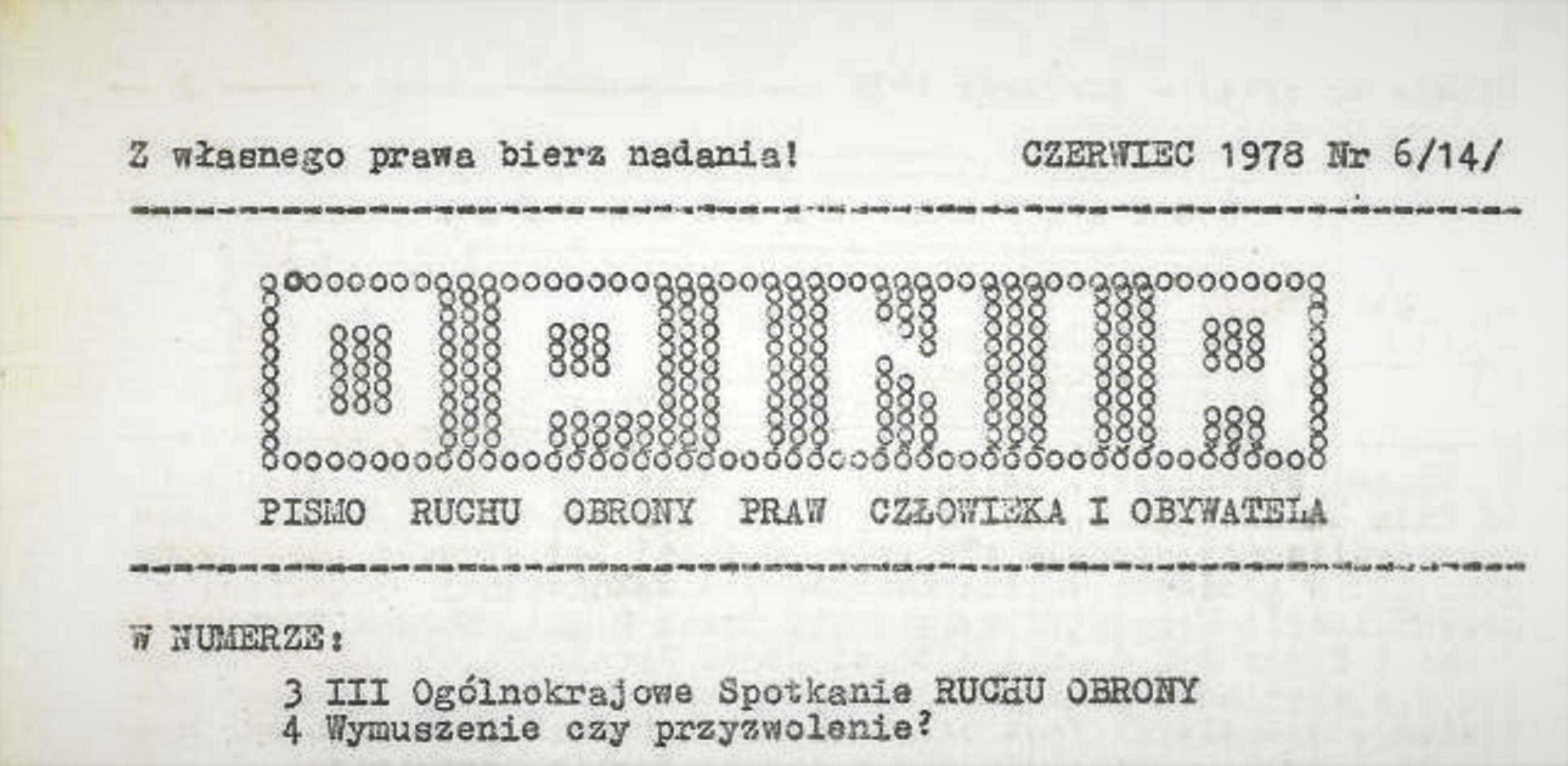A wave of protests swept over Poland in June 1976 after the announcement of an increase in groceries’ prices. The authorities eventually resigned from price changes but introduced repression against the protesting workers. This met with a quick response from the intelligentsia, who organised financial and legal support for the repressed and soon started forming opposition on the basis of the support movement. The Workers’ Defence Committee (Komitet Obrony Robotników, KOR) announced its establishment on 22 September 1976, and the Movement for Defence of Human and Citizen’s Rights (Ruch Obrony Praw Człowieka i Obywatela, ROPCiO) was formed on 25 March 1977, after the Appeal to the Polish People had been signed by 18 parties. The latter’s existence was announced on the following day.
The founders of ROPCiO referred to the Helsinki Accords signed by the authorities of the Polish People’s Republic. The signatories of the document committed themselves to protecting human rights, which is why ROPCiO announced that they would conduct activities like information campaigns, appeals and letters of protest to force the authorities to obey the Helsinki Accords.
The rhetoric and activities undertaken by the movement were distinguished by references to patriotic traditions. For instance, its members organised the celebrations of the Independence Day, which had been formally abolished by the communists in the 1940s. The ambitions of the movement leaders were, however, much greater. Its foremost politicians, such as Andrzej Czuma, Leszek Moczulski, Aleksander Hall or Wojciech Ziembiński referred to the traditions of pre-war political movements: the nationalist one and the one represented by Józef Piłsudski. They soon adopted strictly political slogans as well, including the calling for the independence of Poland. ROPCiO activists started publishing Opinia, one of the first underground periodicals.
The establishment and activities of ROPCiO met with reserve on behalf of KOR co-founders. Its members were accused of trying to break up the Committee or even serving the Security Service. This was caused by both political (with ROPCiO being clearly rightist) and social differences. The dispute also led to division within ROPCiO itself, whose members became soon involved in other opposition initiatives, for instance the Movement of Young Poland or the Confederation of Independent Poland.





